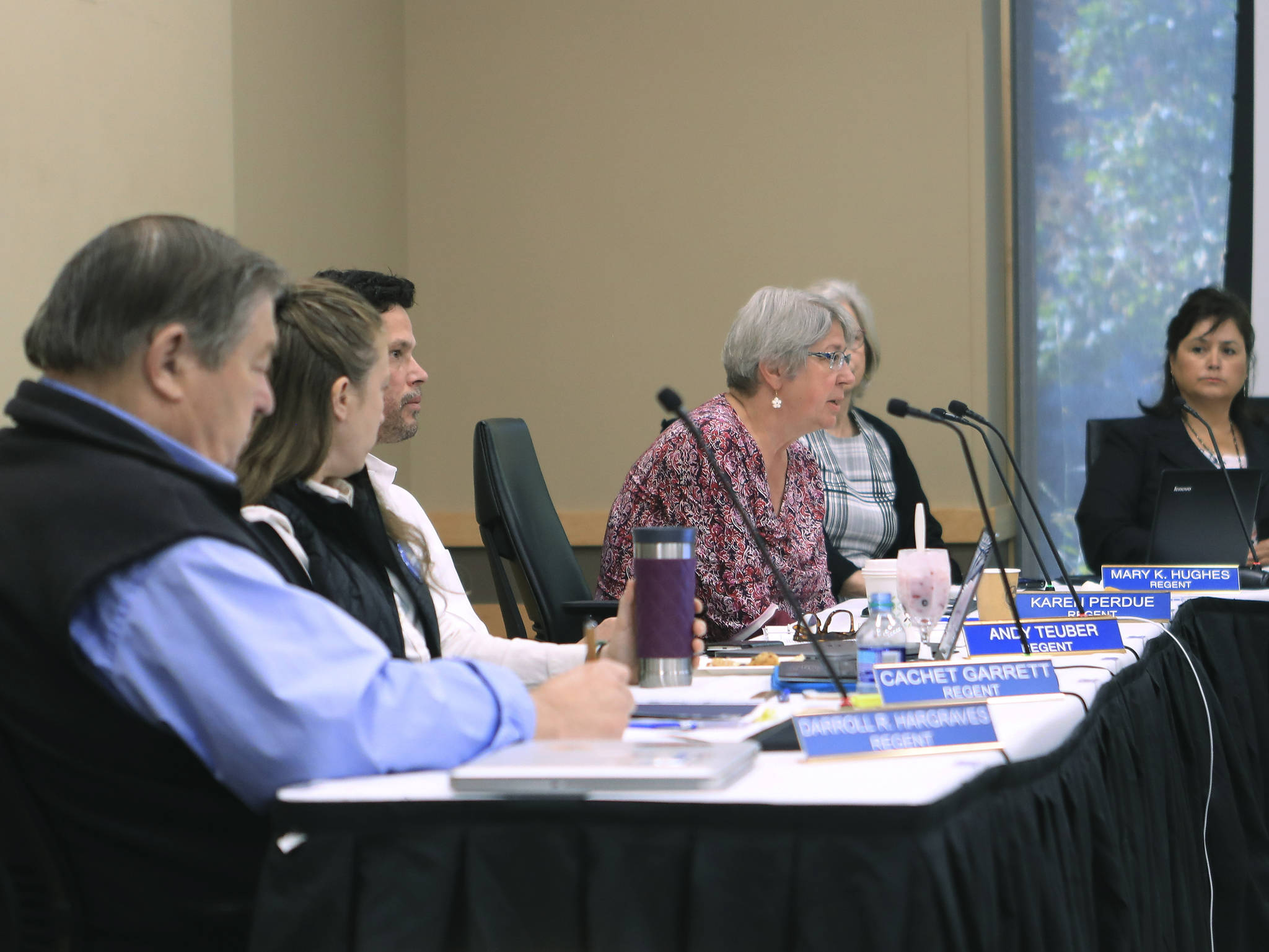ANCHORAGE — The University of Alaska Board of Regents decided Monday they could no longer wait to see if the Alaska Legislature will bail them out from severe budget cuts inflicted by Gov. Mike Dunleavy.
Meeting in an emergency session, regents voted 10-1 to allow administrators to expedite layoffs of tenured faculty, end programs and take other measures to cut expenses.
Declaring the financial emergency is a terrible blow to the university’s reputation, said regent President John Davies. Faculty considering a job would think twice about accepting one, he said, but at this point, the university’s financial situation is not a secret.
“The national headlines are already out there,” he said. “Those faculty members are already choosing not to come. Students are choosing not to come.”
Moving forward without action was no longer a choice, Davies said.
“We have to, in effect, plan for the worst and hope for the best, at this point,” he said after the vote.
Dunleavy, a first-term Republican governor who took office in December, used his line-item veto pen on June 28 to slash more than $400 million from the state operating budget approved by the Legislature.
About one-third of his vetoes were directed at the university. Along with a $5 million cut made by legislators, the university saw its state funding fall by $136 million, a cut of 41% that took effect three days later with the start of the new fiscal year.
That translated into reductions of $11 million each month for the next year. Continuing to delay a decision on how to reduce expenses would compound the problem and require greater cuts later, said UA President Jim Johnsen. Layoffs are inevitable because most of the budget is devoted to people, he said.
The regents could vote on what to cut in September.
Johnson asked regents for direction on how to plan and gave them three alternatives: cut entire campuses, cut each campus proportionately, or come up with a new university structure that makes strategic cuts with fewer programs offered at fewer locations, larger class sizes and consolidated administration.
Regents opted to receive more information on the latter two and will meet again July 30.
The university has main campuses in Fairbanks, Anchorage and Juneau and 13 satellite campuses. Proportionate reductions would hit UA Fairbanks, where most research facilities are located, with a $67 million reduction. UA Anchorage, which serves the most students, would see a $47 million reduction. UA Southeast would be in line for a $10 million reduction.
A majority of state lawmakers two weeks ago voted in favor of overriding Dunleavy vetoes but could not muster a three-fourths majority required to override. Legislators are currently meeting in a special session.
Override supporters vowed to try to restore university money and hoped public pressure would change the minds of override opponents.
Regent Lisa Parker cast the only vote against the declaration. She would not comment afterward, citing regent policy that says only the board president could speak for the board.
Regent Karen Perdue said the public needs to understand how short the time is to make major institutional decisions while minimizing harm to students.
“We not only have a moral obligation to students, we have a legal obligation to students in relation to our accreditation,” Perdue said. “When you think about students who are halfway through their course of study, and they’ve already spent a lot of money, and invested in us, to give them such a short notice, and finality, is just not acceptable.”
• This is an Associated Press report by Dan Joling.

